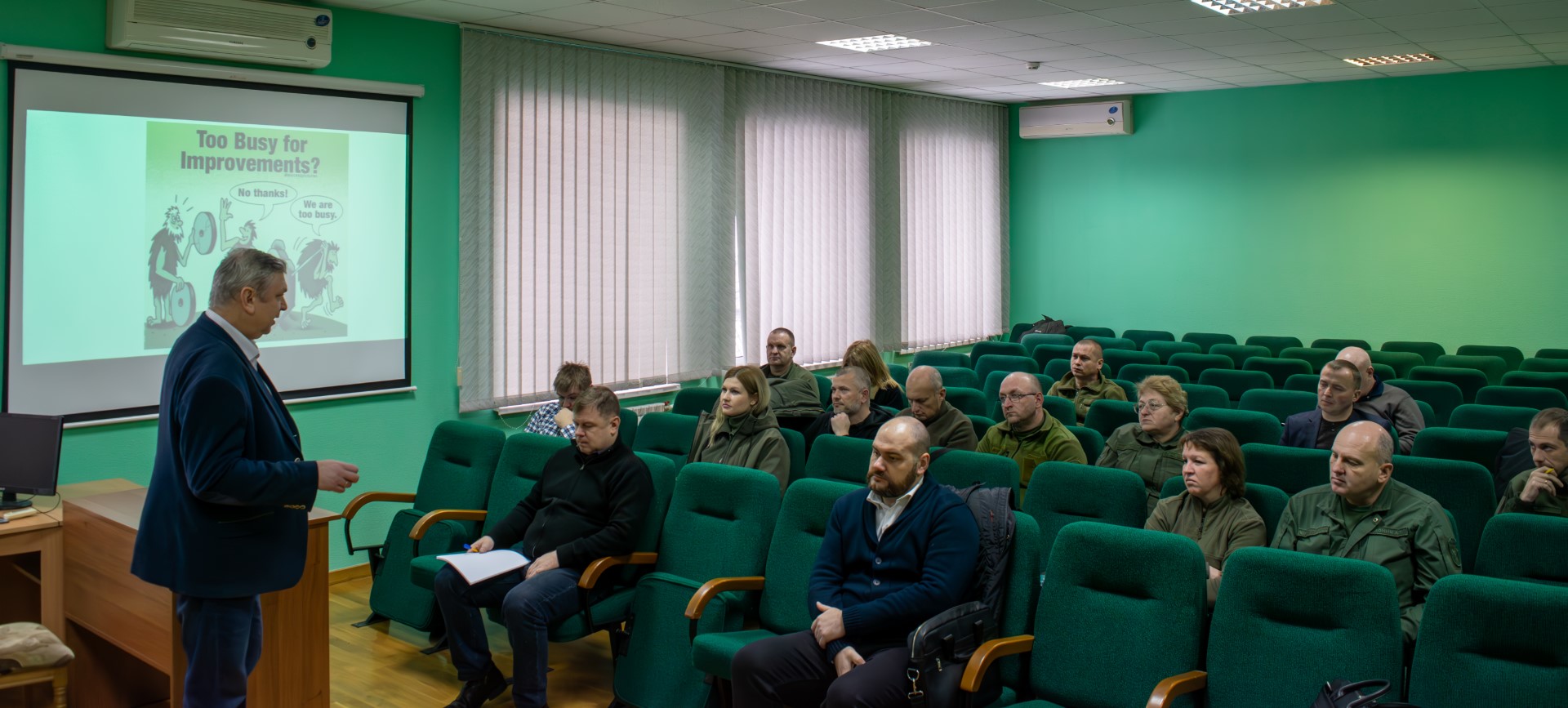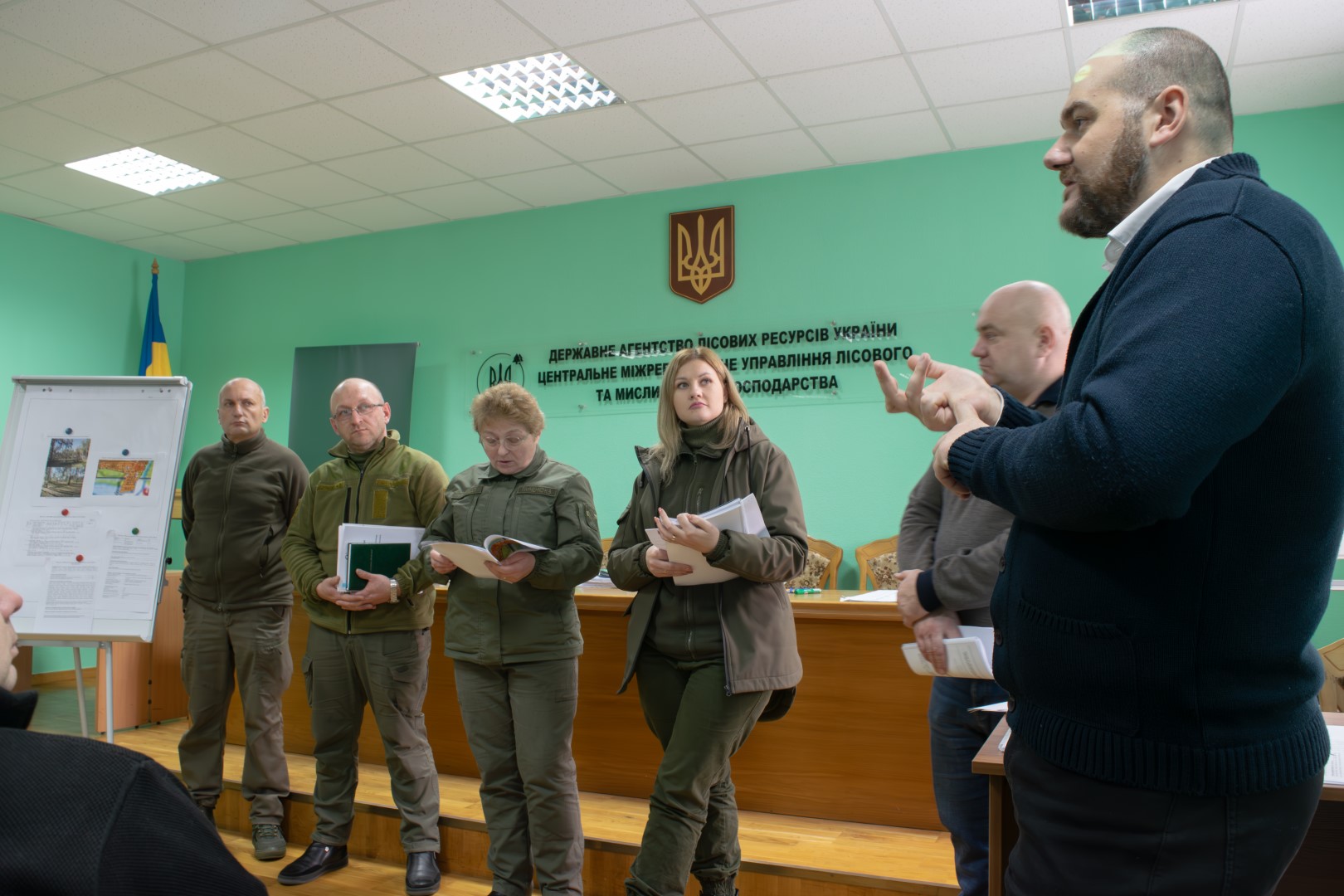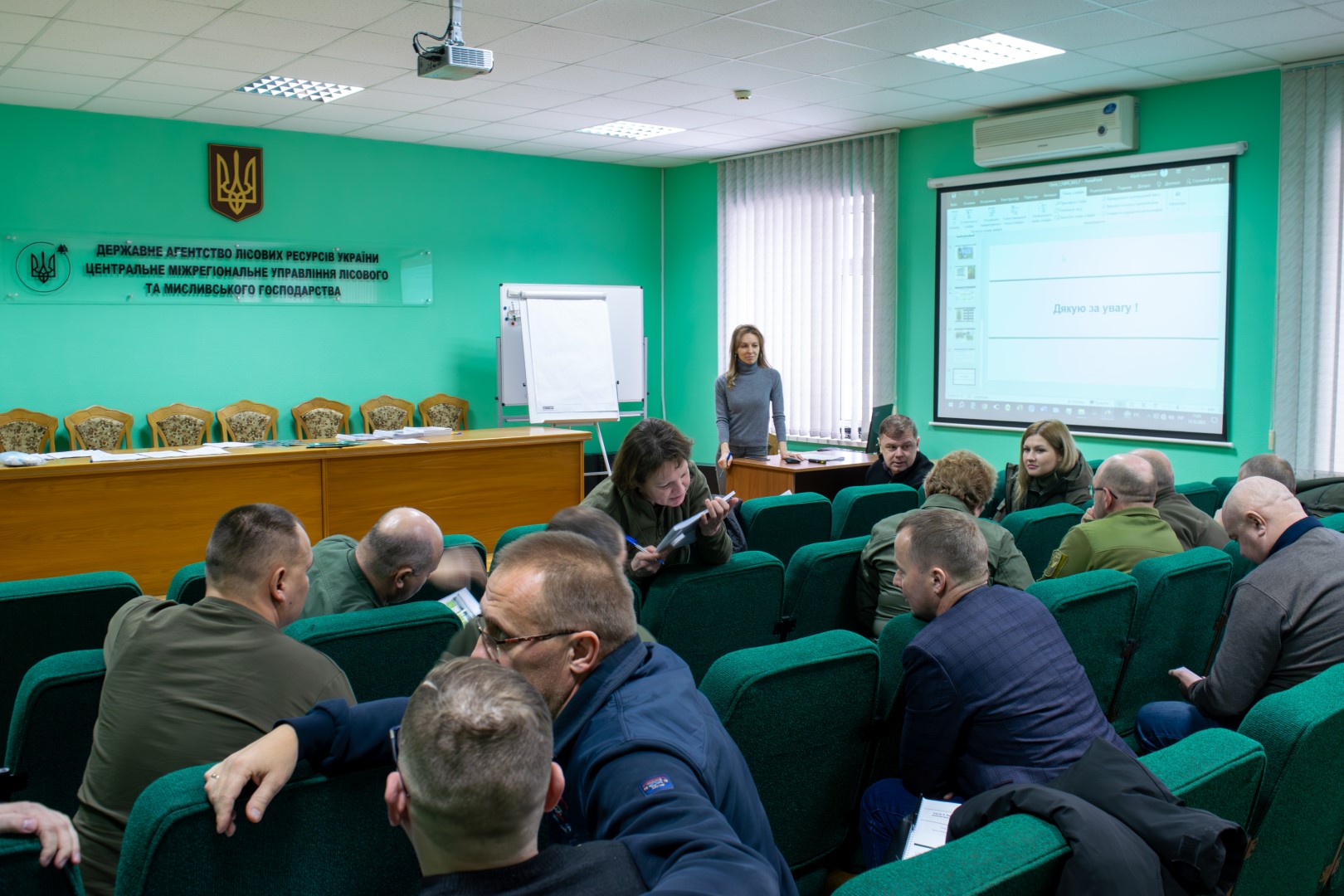
Ensuring responsible forest management as a guideline for decision-making in accordance with the FSC® national forest stewardship standard of Ukraine is impossible without proper protection, maintain and strengthen of the functions of representative sample areas of native ecosystems. The enrichment of traditional forest management practices with such approaches in terms of native ecosystems was discussed during the training, which was attended by the management staff of the branches of the Capital Forest Office of the State Enterprise "Forests of Ukraine".

Integrating the requirements for representative sample areas of native ecosystems into forest practices requires, first and foremost, managerial transformations. System, process, adaptive, risk-based management approaches contribute to improving the validity and quality of decisions made to maintain and preserve such environmental values. This was agreed by the training participants, who, among other things, were interested in specific steps to identify representative sample areas based on proportionality, develop measures to maintain and strengthen their functions, monitor the status of the sites and the effectiveness of the measures taken.

Intensive work in small groups using high-quality illustrative materials, a variety of training methods, lively discussions, and exchange of experience all contributed to the improvement of knowledge and skills of the training participants necessary for the formation and functioning of all processes related to the proper implementation of FSC national forest stewardship standard of Ukraine in terms of representative sample areas of native ecosystems.
Pavlo Kravets, Director of FSC Ukraine, said: "Another significant step forward has been made in enriching managerial decisions of the branches of State Enterprise "Forests of Ukraine" with the approaches necessary to integrate the requirements of FSC national forest stewardship standard into forest management practices. Today, the management staff has mastered such knowledge and skills in the sphere of representative sample areas of native ecosystems, but we see prospects for continuing this work. We were also pleased to host auditors and representatives of certification bodies as the training observers".

